Graham Reid | | 8 min read
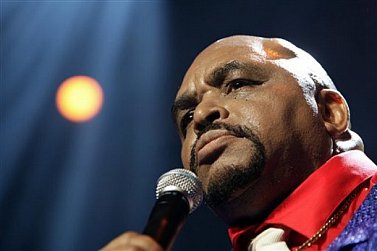
Just exactly when soul music disappeared off radio and out of people's consciousness is hard to pinpoint. Soul - born in the church and taken to the street by Ray Charles, Marvin Gaye, Otis Redding, Sam Cooke and many others in the Sixties -- simply evaporated by the early 70s.
Marvin, Otis and Sam were gone, and some say the golden age ended in April '68 with the murder of Martin Luther King. It trickled through the 70s and 80s with Al Green and blue-eyed acts like Steve Winwood.
But while there were Peabo Bryson and Al Jarreau in the 90s, their polished approach was worlds removed from the aching depths of emotion explored by James Brown, Aretha Franklin, Percy Sledge, Solomon Burke and others in the 60s.
You have to wonder, though, why this powerfully affecting music has disappeared behind diva-driven r'n'b. According to "the King of Soul and Rock", Solomon Burke "they put too many hips and hops in it".
Burke booms with laughter, because while his career has had its ups and downs ("I've been passing down the same road -- the truck got a little lighter sometimes, that's all") he doesn't criticise others' style of, or taste in, music. He's too big for that -- and Burke is a very big man who has lived a very big life.
At 62 -- or 66 depending on which book you read -- Philly-born Burke is a qualified mortician with a chain of funeral parlours, has had 21 children (64 grandchildren and eight great-grandchildren), and sold around 17 million albums. He may not have been in the spotlight these past few decades, but last year was inducted into the Rock'n'Roll Hall of Fame and has always toured and recorded, selling albums today through his www.thekingsolomonburke.com website ("Click here to enter the kingdom.")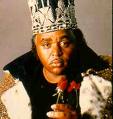
Back in the early 60s two of his songs were covered by the young Rolling Stones ("I've sent a couple of kids through college because of that") and it's said that his successes kept Atlantic Records afloat for years at the time.
Stories about Burke are legion: how as a child he would preach in his family's church wearing regal robes; how he had a million-selling gospel album while still in his teens; how he would insist on selling his own brands of popcorn and hotdogs at his shows in the 60s; how he stopped his tour bus outside a funeral home because no one believed he was an undertaker and went in and displayed his skills before the doubting musicians; how he played a Ku Klux Klan rally before 30,000 ...
Burke is larger than life, owns a limo service, and is a bishop at his own House of God For All People church, which has around 40,000 members. He believes God gave him his voice for a purpose, and he's now bent that purpose on an extraordinary album appropriately titled Don't Give Up On Me.
With spare arrangements by songwriter/producer Joe Henry, the album was recorded in a mere four days. Burke was given songs by Tom Waits, Bob Dylan, Nick Lowe, Elvis Costello and Cait O'Riordan, Dann Penn and others. Most of the material offered by the artists was previously unrecorded -- Van Morrison's two contributions have turned up on his own most recent album -- and are a revelation.
Burke's soulful passion is undiminished, he digs into the emotionally wringing lyrics of the title track and the Costello/O'Riordan gem The Judgment, and with the Blind Boys of Alabama takes the standard None of Us Are Free to a deeper place. There's a self-confessed touch of Louis Armstrong in his delivery of Tom Waits' Diamond in Your Mind ("What a powerful song, not dollars and cents but a diamond in your mind") and the standout is Henry's own spare Flesh and Blood.
It's an uplifting if moody album -- pure gospel in places, Dylan's Stepchild very bluesy -- and stands alongside Burke's best.
"I think the hand of God was over the whole session and when it's right what is for you will be. And now I have the chance to talk to people all over the world about not giving up on themselves and not giving up on me. Every one of these songs has a positive message. We have to have that in our lives.
"We live in such turmoil and every day there are four or five negatives and we have to constantly pray God will protect out families and loved ones as well as ourselves. People are going through trials and heartache and now's the time we have to have a personal healing. Many years ago Marvin Gaye would write a song about sexual healing, but it's a spiritual healing people need right now. We need a spiritual revolution where we come together, not because of a denomination or church, minister or preacher, but because we need to realise we are all human beings." And Burke is still certain that even in this cynical age, the right music has the power to heal. What he couldn't be so sure about was how the recording would turn out: he'd never heard of Henry, hadn't met the band (other than his own organist from his church, Rudy Copeland) or heard the material.
And Burke is still certain that even in this cynical age, the right music has the power to heal. What he couldn't be so sure about was how the recording would turn out: he'd never heard of Henry, hadn't met the band (other than his own organist from his church, Rudy Copeland) or heard the material.
"I knew it was going to be different and had an idea it was going to be unique. So I just came along along and said, 'I'm the baker so let's make cakes, I'm here to work'.
"I'm embarrassed to say I wasn't aware of Joe but I connected with him straight away. We met at breakfast at a famous Jewish deli in LA and I'm sitting there being cool ordering steaks with bagel and onions and cream cheese, and this guy says, 'I'm gonna have hash browns, lots of onions, eggs with cheese scrambled soft - and I want two fried crisp pork chops with gravy on the side'.
"And I'm laughing and thinking, 'This is my producer?' Anybody who does that in a Jewish deli was it for me. I didn't even question him what songs he'd produced or written -- this was the guy."
He speaks in awe of meeting Elvis Costello, who turned up at the studio curious to hear what they'd done with his song only to find Burke still hadn't heard it.
"We'd done several songs before that but hadn't started on his, and then on the third day everyone was running around saying, 'Elvis is here' and I thought they were cracking up. Then Mr Costello walked in like he was delivering pizzas, shook hands and Joe says, 'He hasn't heard it yet -- we're doing this record a little differently.'
"Elvis Costello then said not to play the demo tape but he'd sing it for me. So he sat next to me and sung this beautiful song. Before that he said, 'When we wrote this song we wrote it with you in mind. There was one you recorded many years ago called The Price and where The Price ends The Judgment begins.'
"I just had chills and the feeling was there so we just did it right away. To me The Judgment is an opera -- it could be done with a great orchestra and is an unbelievable song."
Burke says he considers the album a gift to him from the great songwriters ("I'm just rewrapping it") and although he was unaware of who Tom Waits was, and only vaguely familiar with Nick Lowe, he has been delighted with the response from those writers who have heard his interpretations.
"I got a letter from just about every one of them saying, 'Good luck and hope you like the song'. But I was kinda worried about Bob Dylan and thought he might get angry because I said in it, 'old Bob Dylan' and he's much younger than me you know!
"I did two of his songs -- Maggie's Farm and Mighty Quinn -- many years ago so I've always loved his style. But how wonderful to have a song from his great catalogue that he's never recorded and only sometimes does live."
Burke says he has brought to the album his foundation in gospel music but also a touch of the great singers such as Sam Cooke, Brook Benton, Paul Robeson and Nat King Cole, among others.
"When you listen you'll hear little flavours of all these great people along with something of myself."
When asked to reflect on when he was marginalised by the music business, Burke says philosophically: "I never thought it wasn't happening for me -- I always thought God had his own way and will, and there were a lot of changes we went through to survive.
"But I've always believed that you have to get up and do something for yourself and if you make one step then God will make two for you. That's been proven in my life and that of my children and grandchildren.
"The foundation of my life is the things I've been through, the problems and the tension, the love and pain, the turn-around and acceptance, the revival. When you put those together it's a recipe of life and love and togetherness, and that's what I call my soul. And it's something God has given."
Solomon Burke died on October 2010 after a very big life. There is more about Solomon Burke at Elsewhere here.

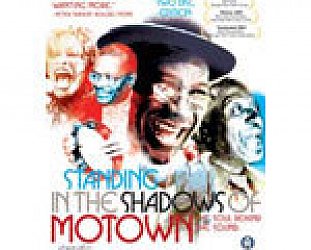

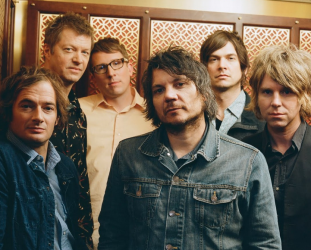
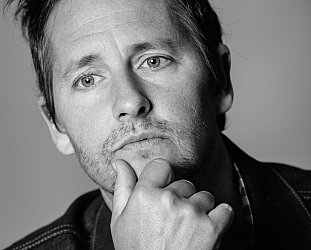

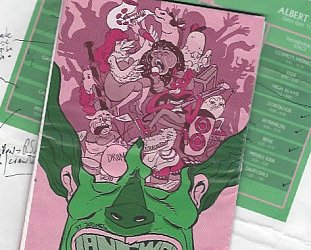
The Riverboat Captain - Oct 12, 2010
He was the best. Jerry Wexler thought so too.
Savepost a comment